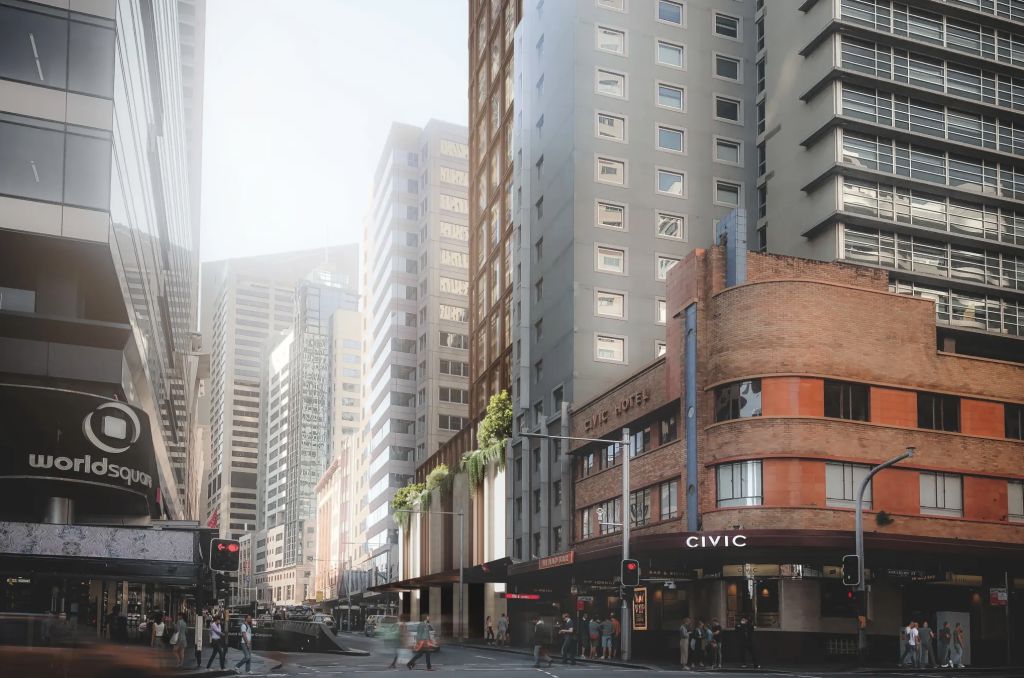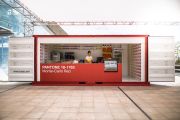
Five architects vying to build new $500m CBD skyscraper
Developers ICD Property and Belingbak have moved a step closer to their proposed $500 million hotel and apartment tower after selecting five finalists in the design competition.
The two are redeveloping the site at 372-382A Pitt Street into a 58-storey tower comprising a 297-room hotel, around 30 luxury residences, and a scattering of retail, entertainment, food and public art offerings. It is a key component of the resurgence of the area which includes the two developers’ City Tattersalls Club tower.
Competing in the process is Woods Bagot, Neeson Murcutt & Neille partnered with Bates Smart, Kelly Hill Architects partnered with Crone, Fitzpatrick & Partners partnered with Tonkin Zulaikha Greer, and fjmt studio.
The architects’ brief is to design a “unique interpretation for the future CBD tower” before a jury of independent judges in January 2023.
This next milestone closely follows the project’s Concept Development Approval issued in mid-September, when the Central Sydney Planning Committee approved plans for the development of the existing low-rise commercial building located in Sydney’s CBD tech-precinct.
“We’ve intentionally selected five distinctly remarkable architecture teams to participate in the 372 Pitt Street design competition, endeavouring to arrive at five unique possibilities for the site,” ICD Property’s chief executive Matt Khoo said.
He added that it was a concerted plan to only have local architects as finalists to ensure the tower reflect “the city’s inimitable charm, history, and people”.
ICD and Belingbak are private Australian-based developers and investors with projects across the country.
Khoo added that one of the key components of the brief is to “celebrate the historic items” of the building and incorporate an active street frontage to cater for the expected rise in demand when the tech precinct is completed.
The developers and architects are also cognisant of the need to make the tower as sustainable as possible to attract buyers for the apartments. Demand is high to construct towers that offer a focused environmental, social and governance policy.
In a new report by CBRE, “Asia Pacific Sustainable City Ranking”, reveals cities in Australia and Japan are the most resilient to environmental risks.
As the region continues along a path of rapid urbanisation and economic growth, the variability of environmental performance across Asia Pacific markets requires commercial real estate occupiers and investors to tailor their ESG strategies to local market factors rather than adopt a one-size-fits-all approach, according to CBRE.
Brisbane, Canberra, Melbourne, Sydney and Perth are all ranked as Leaders, with Su-Fern Tan, head of ESG, Pacific for CBRE, noting a large rise in the use of sustainability benchmarking tools.
However, Ms Tan said there was still unrealised opportunity in the form of green leases and potential for property owners throughout the Asia Pacific region to “do better” or face costly physical and transition risks
“Given that most nations have 2050 net-zero targets, our supply of renewable energy is currently limited. On the plus side this presents a massive opportunity for utilities to accelerate our transition to a clean energy future,” Ms Tan said.










